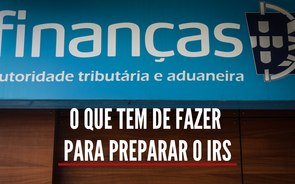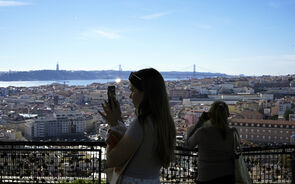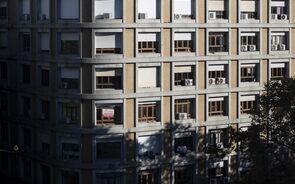Irão retira subsídios aos combustíveis, preço quadruplica
1 Mensagem
|Página 1 de 1
Irão retira subsídios aos combustíveis, preço quadruplica
Unrest fears as Iran forced to raise super-low petrol prices
Published Date: 20 December 2010
By NASSER KARIMI
in TEHRAN
scotsman.com
SQUADS of riot police were deployed across Tehran yesterday as a controversial plan to cut food and energy subsidies and quadruple the price of petrol went into effect.
Witnesses reported a heavy police presence in the squares and junctions of Tehran as well as some western neighbourhoods of the city.
In 2007, angry protesters set dozens of petrol stations on fire after the government imposed a new system of rationing to cut down on access to the country's heavily subsidised fuel.
Introducing the wide-ranging cuts, Iranian president Mahmoud Ahmadinejad said on Saturday that the reductions in essential subsidies were the "biggest surgery" to the nation's economy in half a century. He said poor people would enjoy a life with higher standards after the cuts and the saved money would result in a flourishing economy for Iran.
"I don't know what to do," said one frustrated cab driver. "I am not allowed to increase price of my service, while I am paying five times more than yesterday."
Ahmad Bakhshayesh, a Tehran University politics professor, said it was too soon to gauge the full public reaction to the cuts, though unrest might yet erupt.
"We have to wait and see how inflation will affect their lives," he said.
After the president announced the cuts on Saturday, long lines of cars were seen at several petrol stations in Tehran as Iranians rushed to fill their tanks before the new prices took effect at midnight.
The cuts come as the Iranian economy is under strain after four rounds of UN sanctions over its controversial nuclear programme.
However, Iran had planned to slash subsidies before the latest sanctions took effect, and Mr Ahmadinejad and his allies have long insisted the country's oil-based economy could no longer afford the largesse.
Tehran says it is paying some $100 billion in subsidies annually, although experts believe the amount is about $30bn.
Economic analyst Saeed Leilaz said the cuts were in theory a positive move since it would reduce energy consumption, which is currently costing the country a quarter of its Gross National Product.
"However, it is being implemented in an incomplete fashion because it's not accompanied by a greater liberalisation of the economy," he said, adding that the cuts would probably not have much positive effect.
Under the new rationing system, each person receives 60 litres of subsidised fuel a month costing 40 cents a litre - up from just 10 cents a litre.
Further purchases have gone up to 70 cents a litre, up from 40 cents.
Under the old system, Iran had some of the cheapest petrol in the world.
Mr Ahmadinejad also said his government was paying $4bn in bread subsidies, which will also gradually be phased out.
Economists say the unpopular plan to slash subsidies could stoke the inflation rate which is already estimated to be over 20 per cent. The cuts also are widely seen as placing added burdens on Iranians.
The government says cutting subsidies, known as the Subsidy Smart Plan, will return part of the money obtained from increased prices to the people through cash payments.
It has already paid nearly $15bn into bank accounts of some 20 million families in the country as compensation ahead of the cuts.
Every family member would now receive $80 to help them over the next two months, and Mr Ahmadinejad suggested the money would be available immediately.
New prices for electricity, water, flour and bread are expected to be announced soon.
Published Date: 20 December 2010
By NASSER KARIMI
in TEHRAN
scotsman.com
SQUADS of riot police were deployed across Tehran yesterday as a controversial plan to cut food and energy subsidies and quadruple the price of petrol went into effect.
Witnesses reported a heavy police presence in the squares and junctions of Tehran as well as some western neighbourhoods of the city.
In 2007, angry protesters set dozens of petrol stations on fire after the government imposed a new system of rationing to cut down on access to the country's heavily subsidised fuel.
Introducing the wide-ranging cuts, Iranian president Mahmoud Ahmadinejad said on Saturday that the reductions in essential subsidies were the "biggest surgery" to the nation's economy in half a century. He said poor people would enjoy a life with higher standards after the cuts and the saved money would result in a flourishing economy for Iran.
"I don't know what to do," said one frustrated cab driver. "I am not allowed to increase price of my service, while I am paying five times more than yesterday."
Ahmad Bakhshayesh, a Tehran University politics professor, said it was too soon to gauge the full public reaction to the cuts, though unrest might yet erupt.
"We have to wait and see how inflation will affect their lives," he said.
After the president announced the cuts on Saturday, long lines of cars were seen at several petrol stations in Tehran as Iranians rushed to fill their tanks before the new prices took effect at midnight.
The cuts come as the Iranian economy is under strain after four rounds of UN sanctions over its controversial nuclear programme.
However, Iran had planned to slash subsidies before the latest sanctions took effect, and Mr Ahmadinejad and his allies have long insisted the country's oil-based economy could no longer afford the largesse.
Tehran says it is paying some $100 billion in subsidies annually, although experts believe the amount is about $30bn.
Economic analyst Saeed Leilaz said the cuts were in theory a positive move since it would reduce energy consumption, which is currently costing the country a quarter of its Gross National Product.
"However, it is being implemented in an incomplete fashion because it's not accompanied by a greater liberalisation of the economy," he said, adding that the cuts would probably not have much positive effect.
Under the new rationing system, each person receives 60 litres of subsidised fuel a month costing 40 cents a litre - up from just 10 cents a litre.
Further purchases have gone up to 70 cents a litre, up from 40 cents.
Under the old system, Iran had some of the cheapest petrol in the world.
Mr Ahmadinejad also said his government was paying $4bn in bread subsidies, which will also gradually be phased out.
Economists say the unpopular plan to slash subsidies could stoke the inflation rate which is already estimated to be over 20 per cent. The cuts also are widely seen as placing added burdens on Iranians.
The government says cutting subsidies, known as the Subsidy Smart Plan, will return part of the money obtained from increased prices to the people through cash payments.
It has already paid nearly $15bn into bank accounts of some 20 million families in the country as compensation ahead of the cuts.
Every family member would now receive $80 to help them over the next two months, and Mr Ahmadinejad suggested the money would be available immediately.
New prices for electricity, water, flour and bread are expected to be announced soon.
- Mensagens: 35428
- Registado: 5/11/2002 12:21
- Localização: Barlavento
1 Mensagem
|Página 1 de 1
Quem está ligado:
Utilizadores a ver este Fórum: Ferreiratrade, Phil2014 e 94 visitantes


